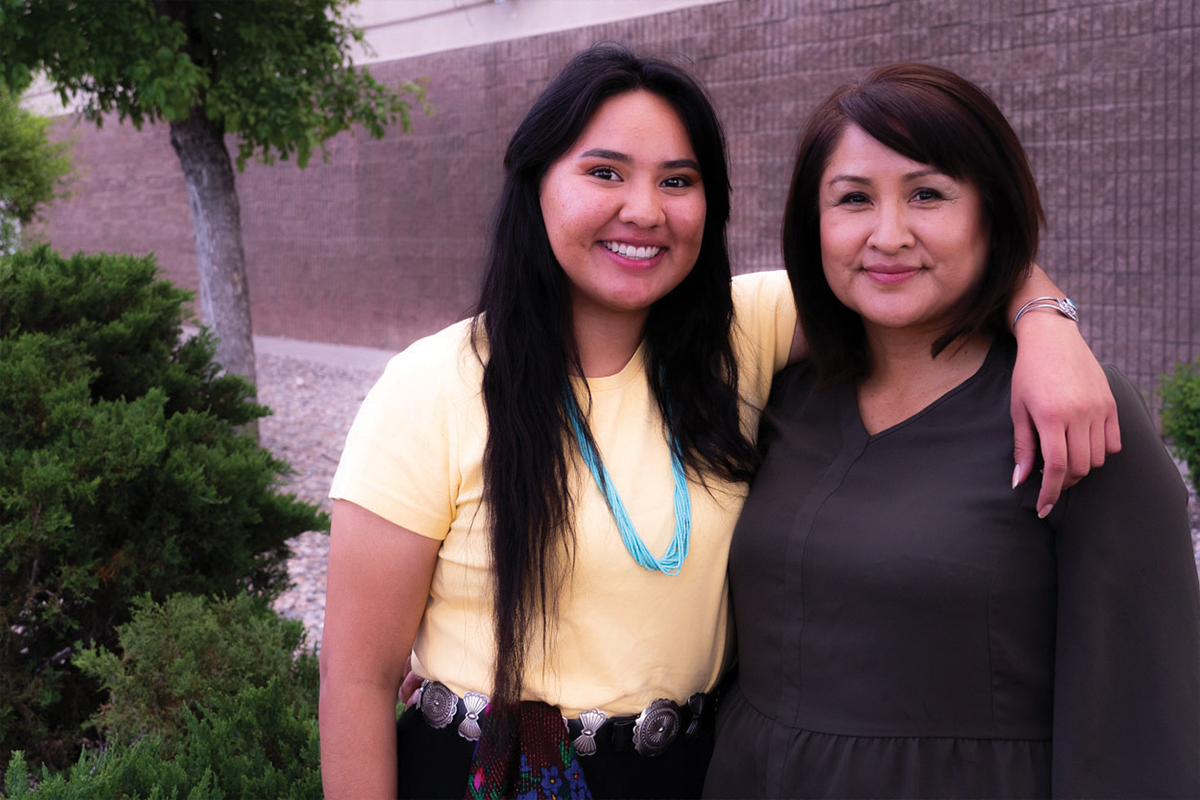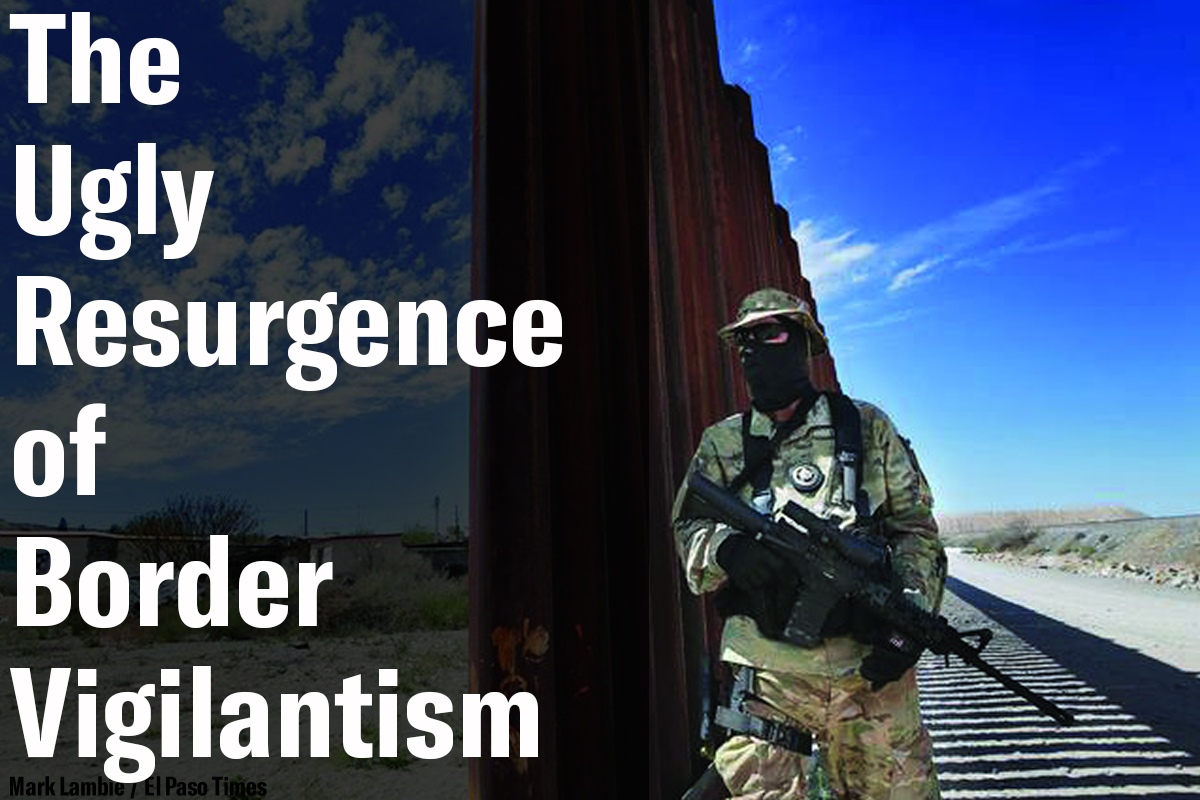It started out as a day she was excited for. It was Halloween and McKenzie Johnson, a junior at Cibola High School in Albuquerque, had her costume picked out and ready to wear. She put on a red cape to go as Little Red Riding Hood, added special effects makeup to her face to create gruesome claw marks from the Big Bad Wolf, and headed to school.
As McKenzie walked through the halls, heading towards her first class, she spotted something that caused her temper to flare. There, walking down the hall, was one of her classmates dressed up in a “Indian” costume, complete with fringed skirt, war paint, and a cheap feathered headband. McKenzie, who is Navajo, takes a lot of pride in her native identity, and it hurt to see her peers disrespect her culture by treating it as a disposable costume.
Still fuming, she arrived at her first period English class where she and her classmates were met with a bizarre scene. Her teacher, Ms. Eastin, had blacked out the windows and lit the room with candles. Ms. Eastin, who was dressed as the historical voodoo priestess Marie Laveau, welcomed the students in character and informed them that today they would be playing a game. She proceeded to quiz the class on a poem they had read, and told them that those who answered correctly would be rewarded with marshmallows and those who gave the wrong answers would be forced to eat dog food.
One by one, she shined a flashlight in students’ faces as she asked the questions, and dispensed dog food to the students who answered incorrectly. When one of the students refused to eat the dog food, she brandished a box-cutter with blade extended. Next she came to a Native American girl with long hair fixed in braids sitting in the back of the class and demanded answers to the comprehension quiz. When the student failed to provide a satisfactory answer, Ms. Eastin gestured towards her braids with the box cutter and asked her if she liked them.
When the girl affirmed that she did like her braids, Ms. Eastin replaced her box cutter with a pair of scissors, grabbed one of the girl’s braids and cut three inches off the end, scattering the hair on the desk in front of her.
“We couldn’t believe what just happened,” said McKenzie. “She cut it really slowly. She had thick hair so you could hear the scissors cutting through every strand. Everybody was looking around at each other like, ‘Was that real? Did that really just happen?’”
Ms. Eastin left the girl to sweep up her hair from the desk with her hands while holding back tears and continued administering quizzes as if nothing was amiss, calling on students and distributing treats and dog food. As she called upon students, if they were dressed in a costume, she would inquire what they were dressed as. When she came to McKenzie, she shined the light on her face and, seeing her makeup, asked, “What are you supposed to be? A bloody Indian?”
“I was just in shock,” said McKenzie. “You could hear the whole class gasp, and they all looked at me waiting for my reaction.”
Ms. Eastin, registering the students’ shock, asked “What? She’s bloody and she’s an…,” stopping short of finishing her sentence, allowing her racist comments to linger.
After the class was dismissed, McKenzie sought out the other Native American student whose hair Ms. Eastin cut to see if she was okay, but she had already fled to the bathroom to cry.
News of the incident quickly spread to the school’s Native American student club sponsor, who gathered McKenzie and the second student to report the teacher’s actions to the school administration. After hearing McKenzie’s account of what transpired, the principal placed Ms. Eastin on administrative leave while they investigated her actions.
McKenzie’s mother Shannon was incredulous when the principal called her to inform her about the incident.
“This is still happening in this day and age?,” said Shannon. “It was unbelievable. I had thought we had surpassed that. You know, this is my baby. We thought she was going to graduate without incident. To hear this about a teacher treating a child like this, it was maddening.”
This incident was especially painful given the historical and cultural context of the teacher’s actions. In most Native American cultures, hair is considered sacred and non consensual cutting of hair is an especially humiliating violation. Through much of the 20th century, the U.S. government routinely tore Native children away from their parents and placed them in boarding schools where their hair was cut as part of a campaign of forced assimilation and cultural erasure. It was doubly painful when a large portion of McKenzie’s classmates and community demonstrated a stunning level of ignorance of these issues, failing to recognize the seriousness of Eastin’s racist remarks and physical assault. In the ensuing weeks, McKenzie and other Native students were bombarded on social media with angry messages from their peers.
“There was a whole bunch of backlash,” said McKenzie. “A lot of the people I knew since middle school were calling me, saying ‘Why did you have to speak out over such a little bit of hair, just because she called you a name?’ It was a lot of loss of trust and friendship at that time. I felt really isolated, like everyone was talking about me.”
Despite the backlash, McKenzie didn’t allow herself to be deterred from standing up for herself and other Native students. Drawing strength from her family, community, and spiritual tradition, she and her mother stood face to face with the administration and school board to demand a formal apology from the teacher, a safety plan for her and the other affected student, and an enhanced school curriculum that better covers Native American culture and history. In open meetings before the school board, local community members packed the room to express their support and outrage, echoing the Johnsons’ demands for improved cultural competency training for Albuquerque Public Schools (APS) staff.
Strong feelings from the community were driven in part by the fact that the incident at Cibola High School was not isolated, but rather part of a pattern of systemic racism in the district spanning decades. In one especially egregious incident from the previous year, two Volcano Vista High School students racially harassed their African American classmates by posting a doctored photo to social media that superimposed Ku Klux Klan hoods over a photo of everyone in the class but the African American students.
A concerned family member of another Native American student at Cibola reached out to the ACLU of New Mexico and made the connection with the Johnson family. After learning more details about the incident, the ACLU of New Mexico offered to represent them. The ACLU of New Mexico organized a meeting with the Johnsons, along with other community members concerned with how Native Americans and other students of color have been treated by APS. The group raised a number of concerns including APS’ failure to properly recognize Native American Heritage Month and ensure that teachers do not assign reading materials with derogatory references to Native Americans without contextualizing them within the nation’s history of racism or violent displacement of Native Americans.
In response to the community’s concerns, the ACLU of New Mexico sent a letter to the APS superintendent demanding that, in addition to taking immediate action by issuing a formal apology and creating a safety plan for McKenzie and the other native student involved, APS implement new policies and procedures to ensure that students can attend school in a safe environment where they are treated with dignity and respect, free from all forms of violence and discrimination. Furthermore, the ACLU of New Mexico demanded that APS implement broader recognition of Native American Heritage Month, cultural competency training for all APS administrators, teachers, and staff, and antioppression curricula for middle school and high school students addressing the harm of racism.
“New Mexico is home to 23 Native American tribes, all of which remain a vibrant part of our state’s culture, economy, and collective spirit,” said ACLU of New Mexico Legal Director Leon Howard. “The City of Albuquerque is bounded by two pueblos to its north and south, and our schools are built upon Native land. We absolutely must ensure that Native American students not only feel safe at school, but are confident that their culture, history, and personal dignity are valued and respected by the schools they attend.“
Shortly following the ACLU’s letter and the public protests at school board meetings, APS announced that it had “severed” its relationship with Ms. Eastin, but allowed her to remain on the school’s payroll to exhaust her paid leave before retiring. By the time of this article’s publication, the ACLU of New Mexico will have also filed a legal complaint with the New Mexico Human Rights Bureau asking for a determination that public school students are protected from discrimination under the New Mexico Human Rights Act.
“These incidents not only prevent students from receiving an equal education; they’re dehumanizing and life altering,” said Howard. “They send a message to students of color that their lives don’t matter and that their schools will not protect them. We’re fighting to establish a clear precedent that our state antidiscrimination protections extend to students in public schools. We’re putting schools everywhere in our state on notice that they have an obligation to create safe and equitable learning environments for Native students and other students of color.”


